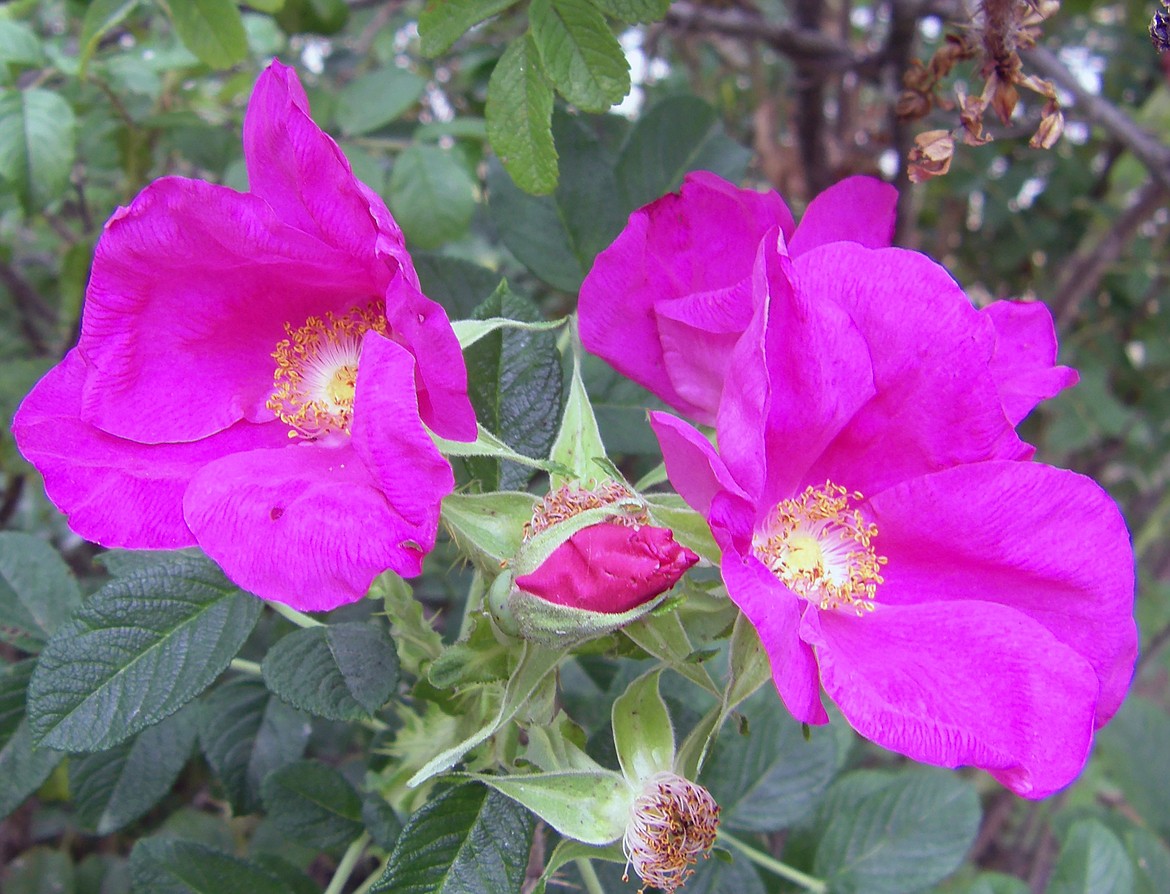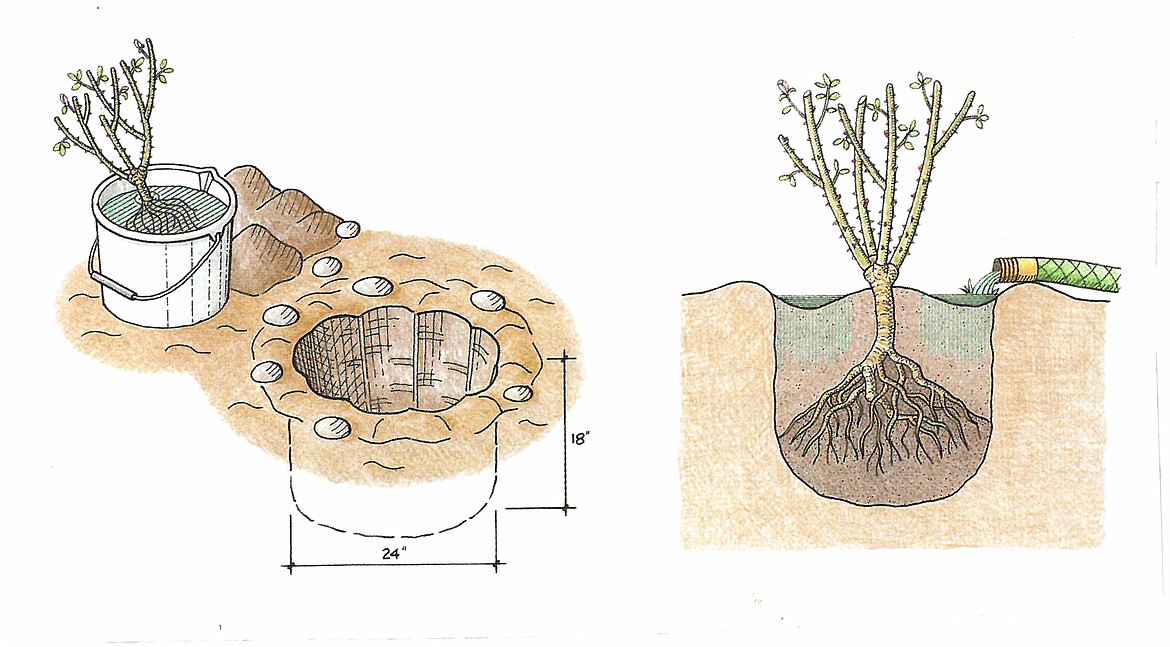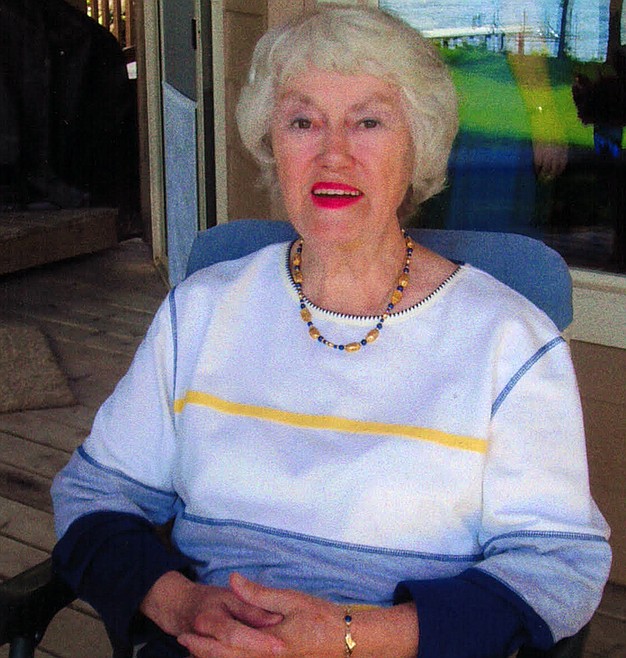Roses: planting, proper care & tips for growing success
Rose care in North Idaho is a far cry from the advice you’ll get from say down South or back East.
Our high country climate needs some special consideration in rose purchase and planting. Recent articles have offered advice on what (and where) to purchase, so today will follow up with “what to do next.” Roses demand a BIG hole and that’s your first and probably most important rule. Own-root roses (the best choice) demand a deep-dug, wide hole that gives plenty of expansion room for roots to spread and take hold.
When planting own-roots or your own transplants, line the bottom with well-rotted manure or rich compost, and make a little hill of soil over which to spread the roots. Cover lightly, water well, then fill in the remaining soil, making sure to cover the “union” where stem meets branches, as per our illustration.
Potted roses also need a big hole, with plenty of loose soil for their root ball to be planted in. Loosen the compact soil a bit when taking the plant from its pot, and make sure there are no roots circling up and/or around. If there are, cut them away, and make sure the bottom of the root ball is loose enough to enable good contact and merging with the ground soil. You can give a shot of fish emulsion or your favorite (natural) fertilizer, especially if you haven’t used compost in the planting hole. Mulch lightly around the root base and keep watered until nicely established. Twice or three-times a week watering is plenty, and a soaker hose is ideal since overhead watering can cause black-spot and other leaf-spotting problems.
There is one caveat with roses: Don’t use pesticides anywhere around them! They are sensitive to all of them, including some of the once-popular fungicides. Use natural repellants. Water sprays off aphids; if it’s slow to work, use Safer’s. Local nurseries carry a fabulous organic rose spray that I wouldn’t be without. Once you’ve planted new roses, do NOT (as some instructions will tell you) cut them back! That rule is not for our cold climate! Trim damage of course then let them grow. Too, don’t prune new plants for three years other than for winter-damage, and then only in the spring! All perennial shrubs need that time to get established. Give fertilizer to them through the summer every six weeks or so till mid-September and then quit till next Spring. . Reminder: Don’t fertilize natives!
Following are some basic tips that can benefit your rose and other perennial gardening success.
Heavy rains (and overhead sprinklers) can cause blackspot. If your roses are marred with it, pick off all affected foliage and get rid of it. Do NOT put it in the compost pile! Caveat: Always water roses from the base, unless they have aphids. That’s the one time you can use “overhead” watering on roses. Use a sharp spray from the hand-held hose nozzle to wash the little pests away. If this doesn’t prove effective, use a soap spray.
Re leafy perennials - many well-meaning gardeners want to immediately “clean up” theirs up when they’re finished blooming, Iris among these. Yes, cut the stem that bore the blossom, but NOT the leaves! You will deprive the root systems of nutrients that will continue to nurture the root, bulb, tuber or corm. Some Iris growers “fan” their plants after bloom, cutting just the leaf tops into an upward “vee.” Do what you wish, but no severe trimming, please. I personally simply wait till spring’s snows have melted, (that’s now) then pull away the dead yellowed and brown leaves of Iris, Peony, Valerian and such.
Spring’s heavy rains can leach out nutrients in the soil. That’s the time to fertilize. I generally use blood meal on the perennial path beds and gave my potted plantings a dose of fish emulsion. Since my roses are all hardy Rugosa species, they need nothing special but thrive in our acidic soil as do all native plants As usual, you will want to prepare planting areas with compost or aged manure in readiness for your purchased selections.
One final tip, just for fun! Don’t forget that your (unsprayed) rose-petals are a fragrant and lovely edible topping for cakes and in punchbowls and are wonderful in a pretty keepsake bowl for potpourri.
Valle Novak writes the Country Chef and Weekend Gardener columns for the Daily Bee. She can be reached at bcdailybee@bonnercountydailybee.com. or by phone at 208-265-4688 between the hours of 8 a.m. to 7 p.m.





